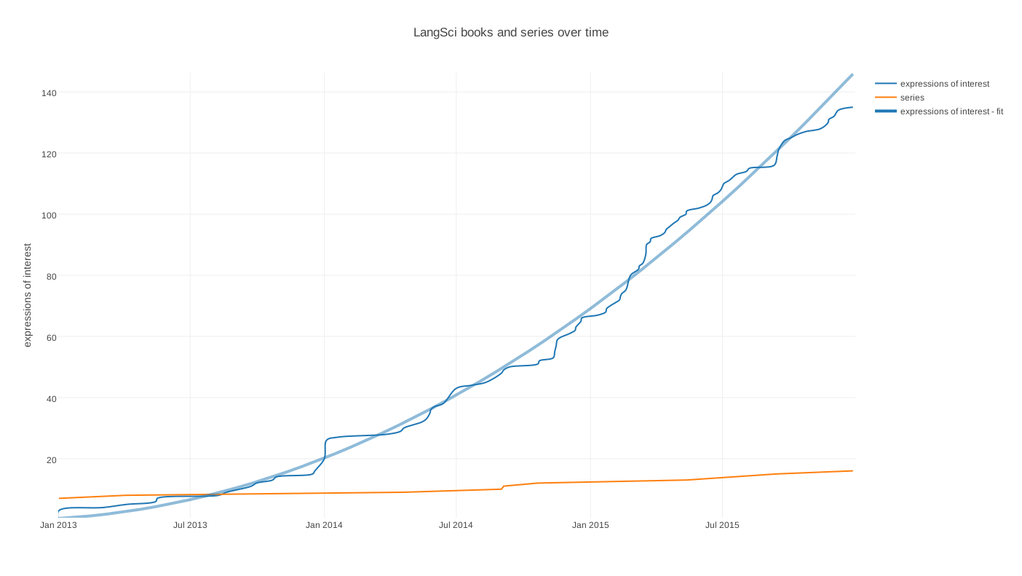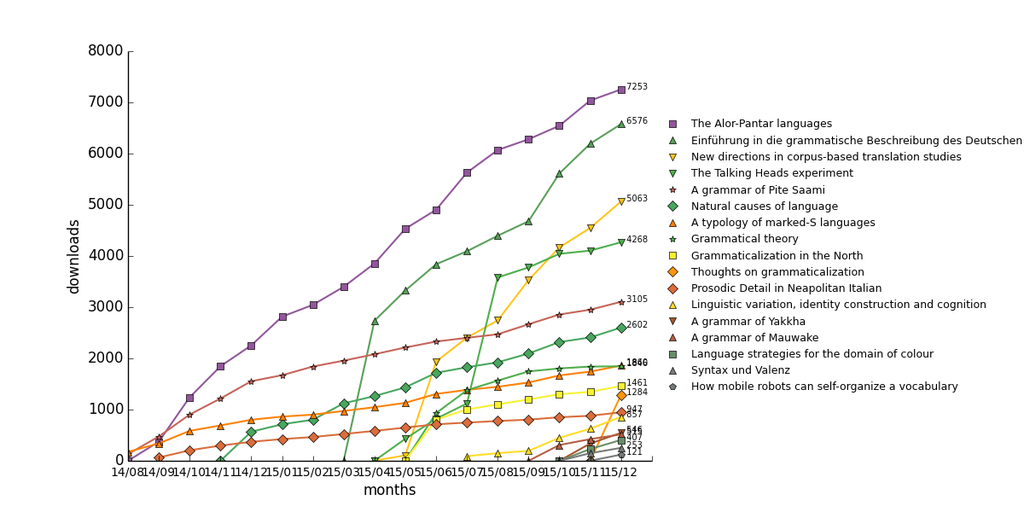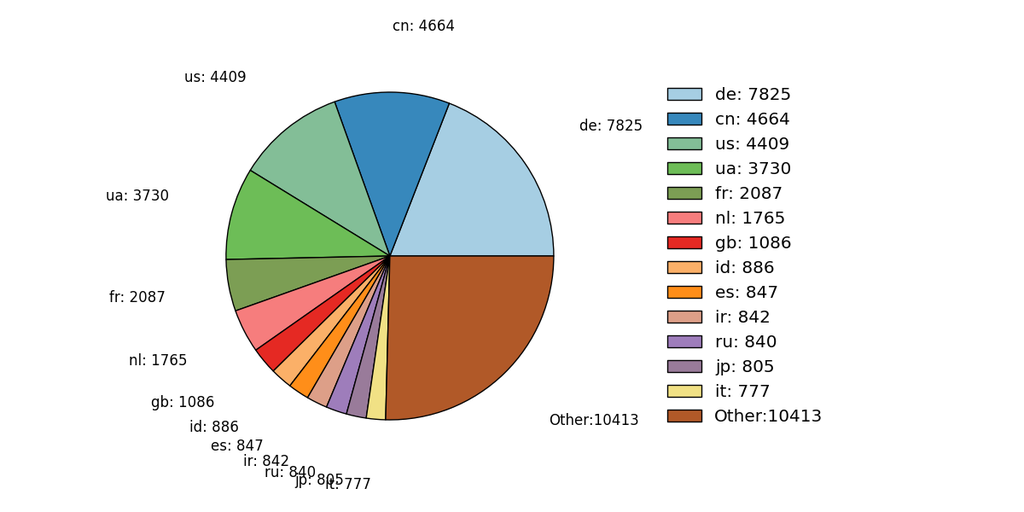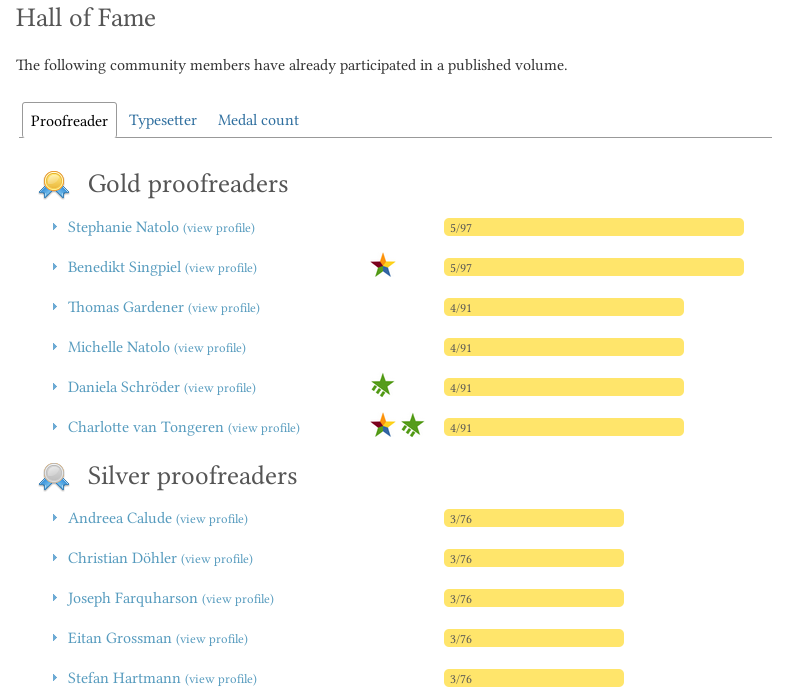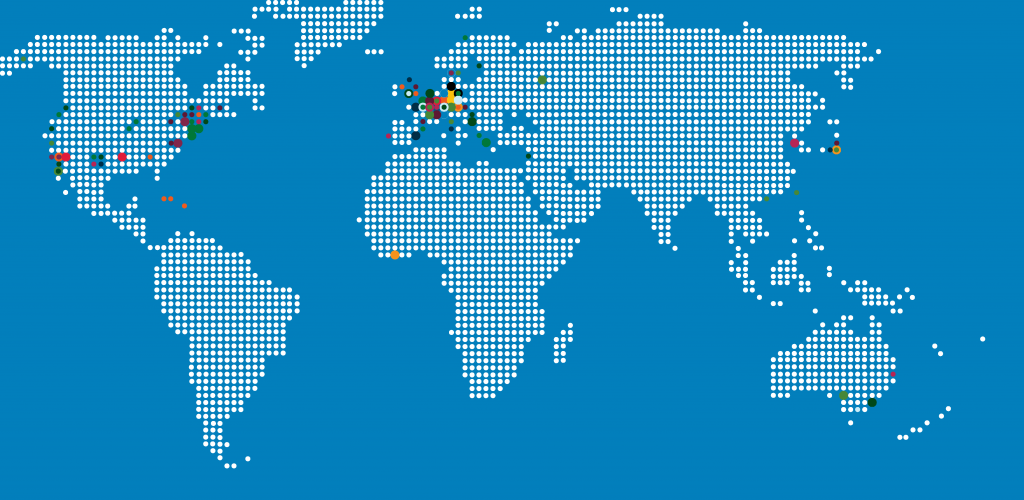2015 has been the first complete year for Language Science Press since the beginning of operations in early 2014. There is now enough data to run some analyses.
Works and series
Up and until 2015-12-31, 139 works have been proposed to
Language Science Press. the following figure gives a breakdown of the
distribution of these works and their states of completion.
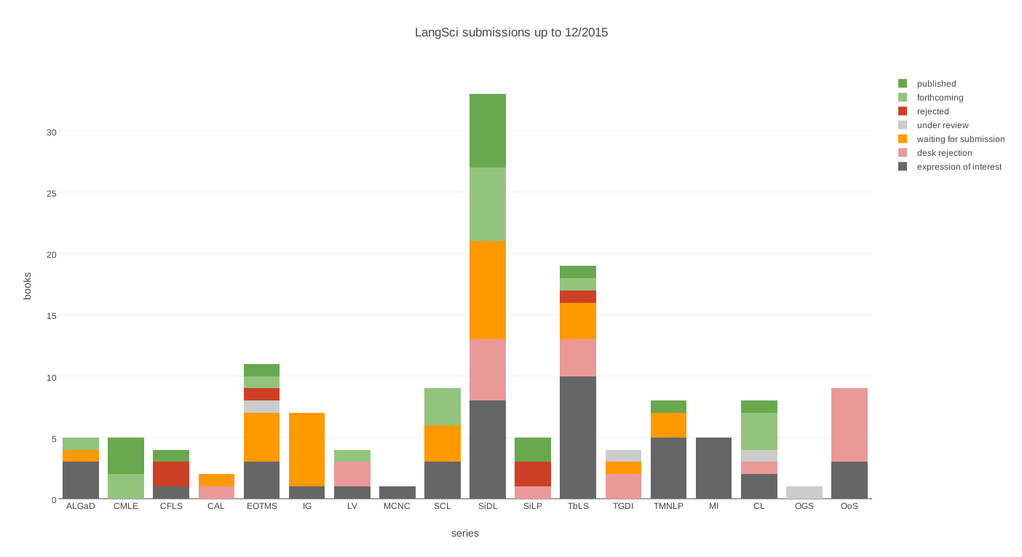
Works with Language Science Press. The colour code is as follows: Black=expression of interest, light red=desk rejection; orange=waiting for submission; grey=under review red=rejected after review; light green=forthcoming; dark green=published.
The most active series are Studies in Diversity Linguistics, Textbooks in Language Sciences and Empirically Oriented Theoretical Morphology and Syntax. When considering only the works which have actually undergone review, however, Studies in Laboratory Phonology, Conceptual Foundations of Language Science and Computational Models of Language Evolution are also doing well. Network effects apply: as soon as some books are out, the series gets better known and more submissions follow.
There are currently 17 series, up from 7 when the project started. The following figure shows the evolution of the number of books and the number of series. The figure also shows the evolution of expressions of interest. As a rule of thumb, we get about one expression of interest for a book a week. For analytical purposes, we have also added a fit curve, which is slightly superlinear, predicting an increase in the number of expressions of interest for the future.
Downloads
Until 2015-12-31, LangSci books have been downloaded 40323 times. This excludes downloads by search engine robots. The most popular work is The Alor-Pantar languages, downloaded 7523 times, followed by Einführung in die grammatische Beschreibung des Deutschen with 6576 downloads.
We had observed an asymptotic pattern for the download numbers. Note that Einführung in die grammatische Beschreibung des Deutschen (green triangle), New directions in corpus-based translation studies (yellow triangle) and The Talking Heads Experiment (inverted green triangle) show a more bumpy pattern.
The countries where most readers come from are Germany, China, the US and Ukraine, showing interest from East and West alike. Indonesia and Iran among the top ten also underscore the relevance of Open Access for non-Western countries.
Community involvement
Language Science Press is a community enterprise. We rely on the community for authoring and reviewing, but also for typesetting and proofreading. Among all published books, 43 linguists from all over the world have participated in proofreading. Many more will be found in the upcoming books. There are currently 139 proofreaders registered with Language Science Press. We give recognition to our proofreaders in our Hall of Fame.
For our 17 series, we are happy to be able to rely on 188 members in editorial boards from 33 different countries on five continents (see Figure). These numbers clearly show that Open Access in linguistics is thriving world-wide and that the community is happy to participate in making our research available for everybody to read and appreciate.

